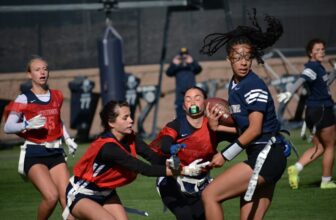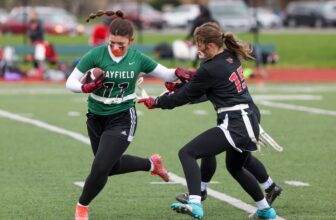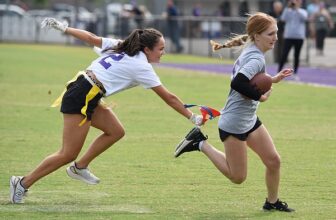This year both North and South have experimented with a new schedule: beginning classes at 9 AM each day and ending close to 4 PM. Some teachers that I respect have lauded the change, noting that their students are much more alert during the first block of the day than in prior years. For several years some parents have been advocating later starts, citing evidence that teenage biorhythms are ill-suited to the 7:40 start time. It may well be that the superintendent and school committee declare the change permanent.
No doubt, all these voices are sincere. My experience, however, over 34 years as both a teacher and coach leads me to disagree. I fear that the later start will exacerbate problems that started when the academic day lengthened during the Ed Reform Era of the 90s.
The high school schedule started veering off the rails with the onset of the state-mandated 990 Rule. That provision required students to spend a minimum number of hours per year in class in major subjects. Newton, ever loyal to state mandates, created a lengthier and, frankly, more tedious schedule for all involved. Other comparable suburban schools found a way essentially to work around the mandate and to maintain schedules in line with their prior practice. Even today, our peer schools end earlier than in Newton. Before 990, high school began here at 8 AM and ended at 2:30 or earlier most days. In their major subjects students attended four blocks per week, each fifty minutes long: no 55 or 75-minute long blocks! Suddenly, with 990 school began at 7:40 and sometimes ran almost up to 3 PM. J-block, Newton South’s tutorial block after school on Monday, Wednesday, and Thursday, generally lasted until 3:30.
Before 990, extracurricular activities, ranging from play and band rehearsals to athletic team practices and club meetings, usually started during J-block. If students needed to attend J-block with a teacher to review material or to complete projects or exams, they would show up to their activity afterward with a note from the teacher in hand. In my view, it worked well. Extracurricular activities, by and large, ended before 5 PM except for competitions. Students arrived home in time for dinner, with several hours afterward to complete their homework assignments.
Most importantly, students had less difficulty balancing their academic and non-academic lives. Let’s face it: the speech team or the chess club or the track team is often the activity that anchors a student in high school. Academics, to be sure, should take the highest priority. My tennis players understood that if they were falling behind in classes or even failing, they needed to reconsider their participation on the team. For most players, however, being on the team improved their academic achievement by forcing them to better organize their time.
The argument behind 990 was that student learning would improve with more “face time” with teachers of major subjects. I never found that to be the case. I taught half my career with 50-minute blocks and half with lengthier blocks and saw no difference. In both eras, graduates returning to visit generally made the same observation: they felt well prepared for their classwork, indeed better prepared than their college roommates. Not one student complained of being unready for the rigors of college studies. In other words, South was already quite academic before 990. All that 990 did was take precious time away from students’ lives, thereby increasing the pressure on them.
The new, late-starting schedule, unfortunately, may heighten the pressure even more. With school ending so late, sports practices and theatre rehearsals cannot begin until 4:30. If they end at 6, then many students will not get home until 6:30 or 7. If we have a road match, who knows when we will return? Last Friday’s volleyball game ended at 9:30! Imagine the scramble to complete assignments at such a late hour. Already, some veteran team members have decided not to play this spring, given the demands of this outlandish schedule.
Sadly, it seems that South is slowly abandoning its former goal, as articulated by principal emeritus Van Seasholes: educating the whole student. This notion means nurturing both intellectual and athletic activity, passion and discipline. This late-starting schedule, coupled with the demands of 990, makes less tenable one vital means of expression: extracurricular activities.
Travis Burnett
A pioneer in the flag football community, Travis helped co-found the Flag Football World Championship Tour, FlagSpin and USA Flag. Featuring 15+ years of content creation for the sport of flag football, creating and managing the largest flag football tournaments on the planet, coaching experience at the youth and adult level as well as an active player with National and World Championship level experience.









